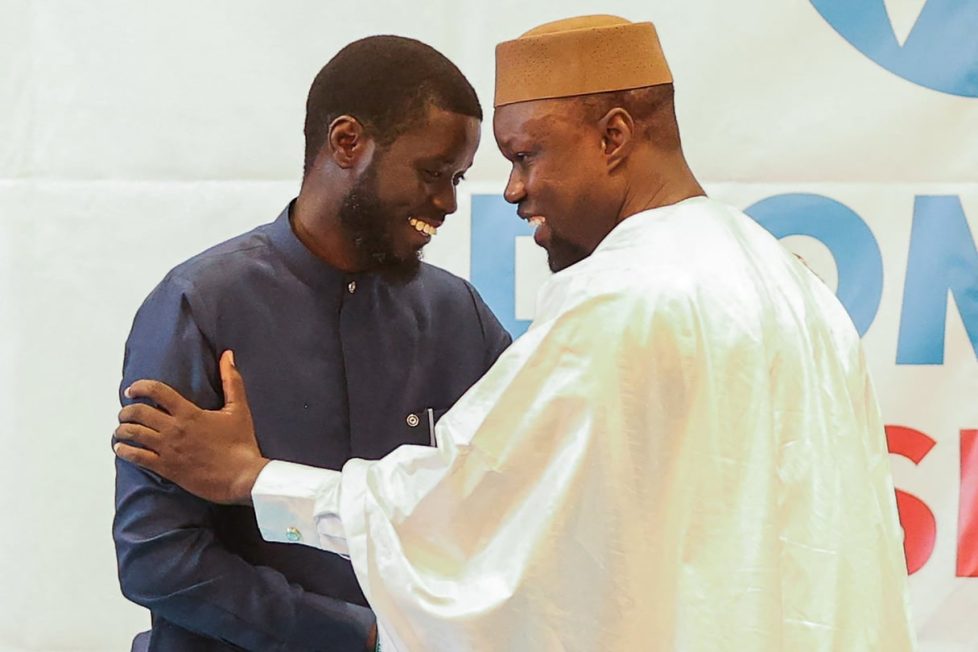Sonko, the dead of Thiaroye and the shadow of Diomaye

Prime Minister Ousmane Sonko, incidentally president of the ruling Pastef party, has decided, when no one asked him to, to strike back at the French government, which has decided to grant the status of ‘Dead for France’ to 6 of the Senegalese infantrymen killed at Thiaroye in December 1944. It should be remembered that the cause of their deaths was to claim their pay before returning to their villages. The French government of the time decided to pay their blood debt with bullets. To this day, even their killers don’t know or won’t say how many people were killed that day in this corner of the Dakar suburbs.
The Senegalese were not the only ones to fall victim to the bullets of ingratitude that day at Thiaroye. As well as failing to pay them as good and brave soldiers who had sacrificed their strength and youth far from their homeland, in the same way as their French comrades in arms, France went so far as to erase the memory of their bravery. How many people in France and in African countries really remember the part played by these riflemen in the liberation of France? How long did it take for many of them, after untold struggles and sacrifices, for the few survivors who remained to be entitled, in the short time they had left to live, to a veterans’ pension equivalent to that of their fellow soldiers?
Read the column – Good news from the Senegalese open seas
It has to be said that for decades, these brave soldiers lived on handouts. And if this has continued, it is because the neo-colonial system put in place in our countries has helped to perpetuate it. Speaking only of Senegal, how many people are aware of the meagre pensions paid by that country to former combatants and riflemen from the colonial wars? Even if they had paid the price of blood for the colonialists, how many governments have been grateful to them for their sacrifices?
It was not until almost the end of his term of office that Abdoulaye Wade, himself a war veteran, reminded the Senegalese people of the courage shown by their compatriots in the colonial wars, in Europe and in the colonies, Madagascar, Congo, Indochina and Algeria. This part was not always glorious, we must have the courage to admit it. But it is this silence and contempt on the part of France that has long been hurtful to Africans. All the expressions of contempt and marginalisation to which they were subjected by the French, whether in diplomatic representations or on French soil, led the descendants of the tirailleurs to wonder whether the sacrifice of their ancestors was worthwhile, whatever Léopold Sédar Senghor may have thought and sung.
The French government’s proclamation that it would recognise ‘only’ 6 of the infantrymen murdered at the Thiaroye camp provided an opportunity to vent bile once again. Prime Minister Ousmane Sonko took off his gloves to lash out: “We are asking the French government to review its methods, because times have changed!
Read the column – Commitment Charter: Employers Put the Cart Before the Horses
Many have hailed the decision by the French authorities to give ‘recognition’ to six of the African soldiers killed in cold blood by the French Army at the Thiaroye camp in 1944 as a major step forward. This recognition consists in awarding them, posthumously, the label ‘died for France’. Why this sudden ‘realisation’ at a time when Senegal is preparing to give new meaning to this painful memory, with the celebration of the 80th anniversary this year?
I would like to remind France that it can no longer make or tell this tragic piece of history on its own. It is not up to France unilaterally to determine the number of Africans who were betrayed and murdered after helping to save it, nor the type and extent of the recognition and reparations they deserve.
Thiaroye 44, like everything else, will be remembered differently from now on.’
We could have applauded Mr Sonko’s statement if it had been made according to the orthodox rules. First of all, as the leader of a political party, what prerogative does he have to speak on behalf of a sovereign state and announce that Senegal is preparing to give a ‘new meaning to the commemoration of this painful memory”’? The Senegalese have not forgotten that the mayor of Ziguinchor, Mr Ousmane Sonko, wanted to deny the Senegalese infantrymen their memory, by wanting to name a street in his town in memory of the ‘tirailleurs africains’, who do not exist in historical memory.
Read the column – Development Paths Mapped Out in the Desert
This outburst from the president of Pastef, at a time when the president of the Republic Diomaye Faye is in France, looks very much like a Senegalese episode in local politics. Feeling suffocated in the shadow of his former lieutenant, who has become the country’s No. 1, Ousmane Sonko gives the impression of wanting to do everything he can to show that he still has a voice that counts in this country. And legally, he is, like all Senegalese, dependent on the signature at the bottom of the decree of the man who made him Prime Minister, he wants his population of ‘talibés’ to believe that he is not just good at inaugurating chrysanthemums. Hence the need to invite Mélenchon to the Ucad, to mobilise his militants at the Grand Théâtre, to appear after the Head of State at an Army ceremony. Speaking of which, when will General Kandé take up his post in New Delhi?
By Mohamed GUEYE / mgueye@lequotidien.sn

